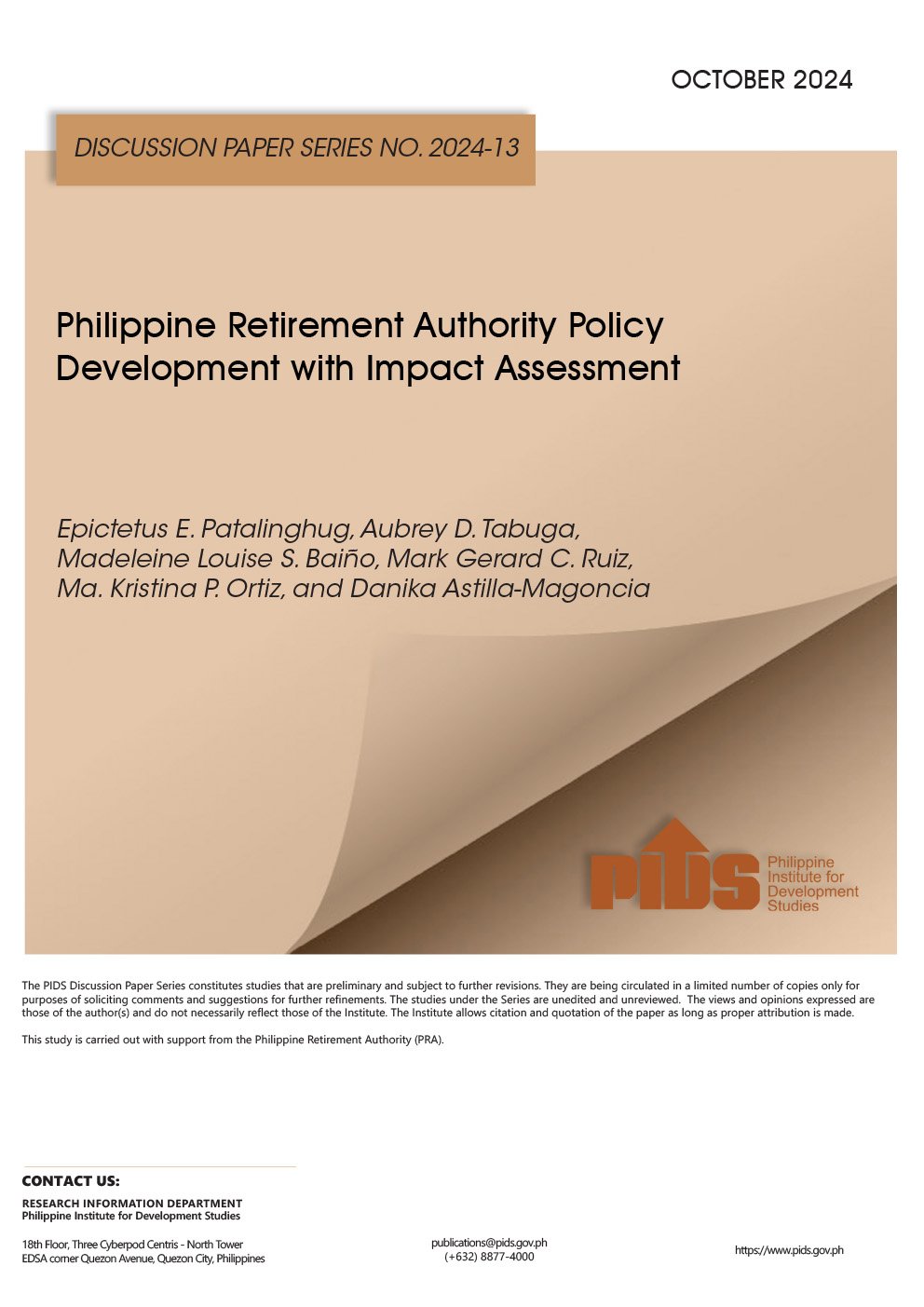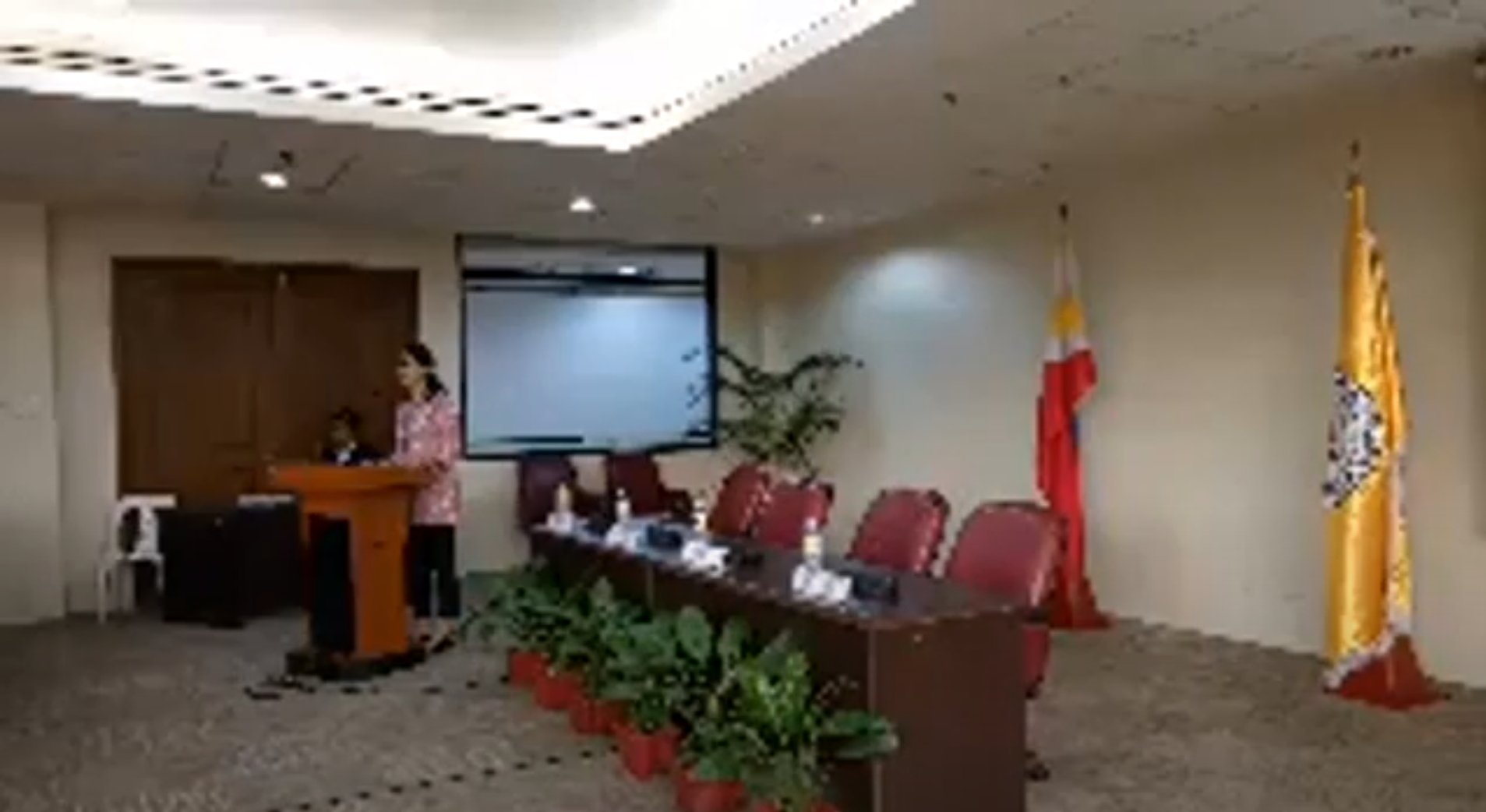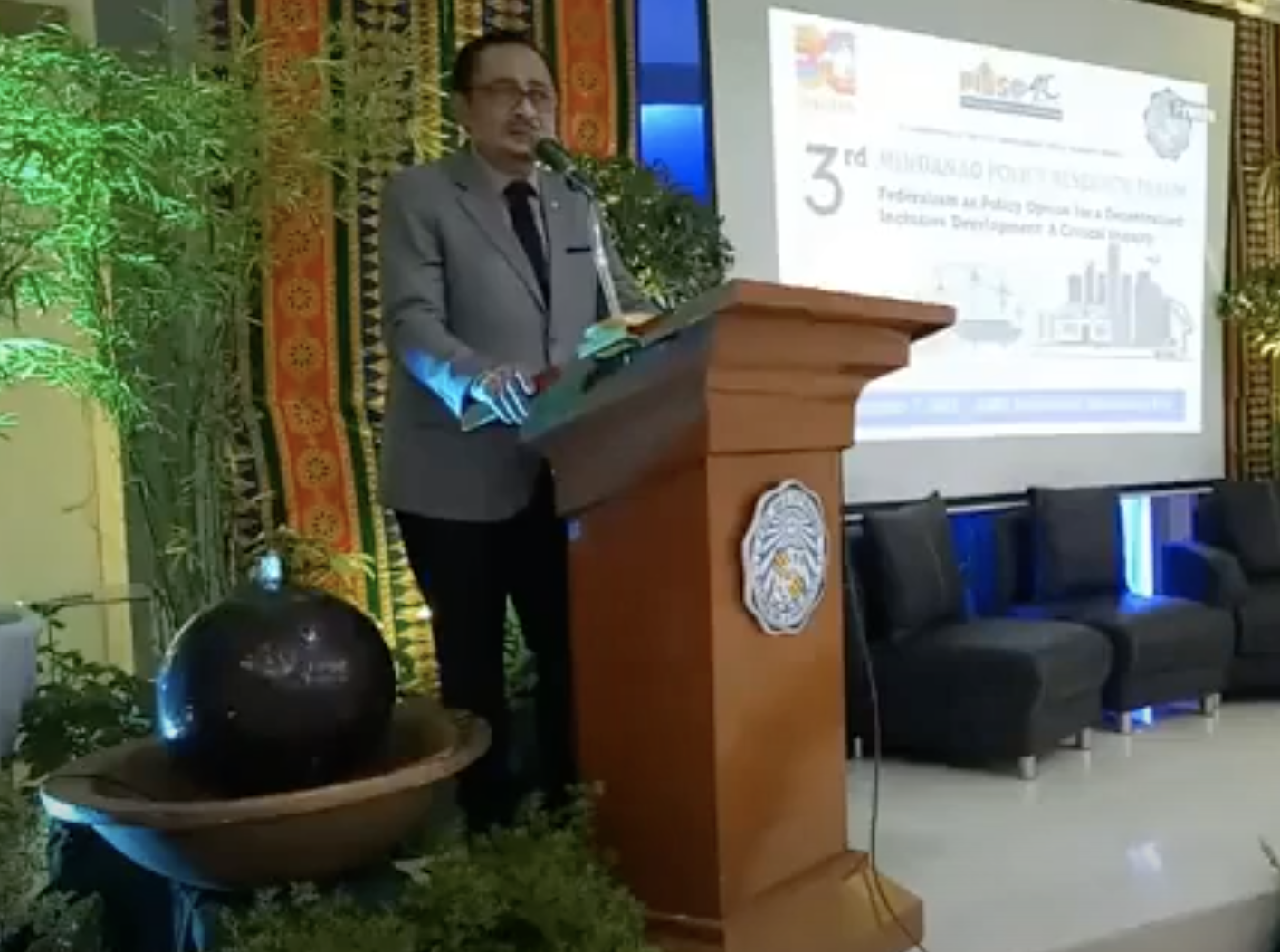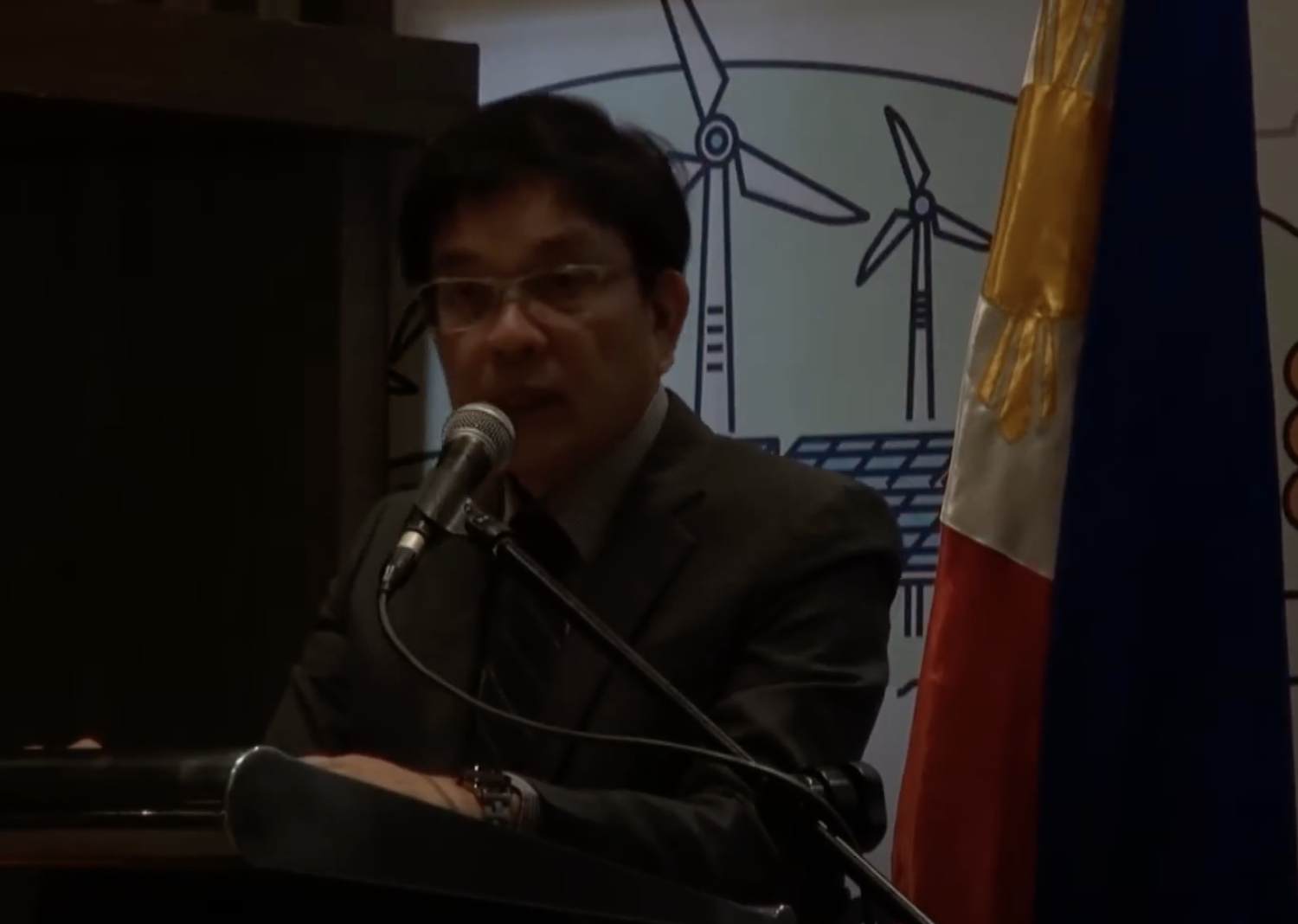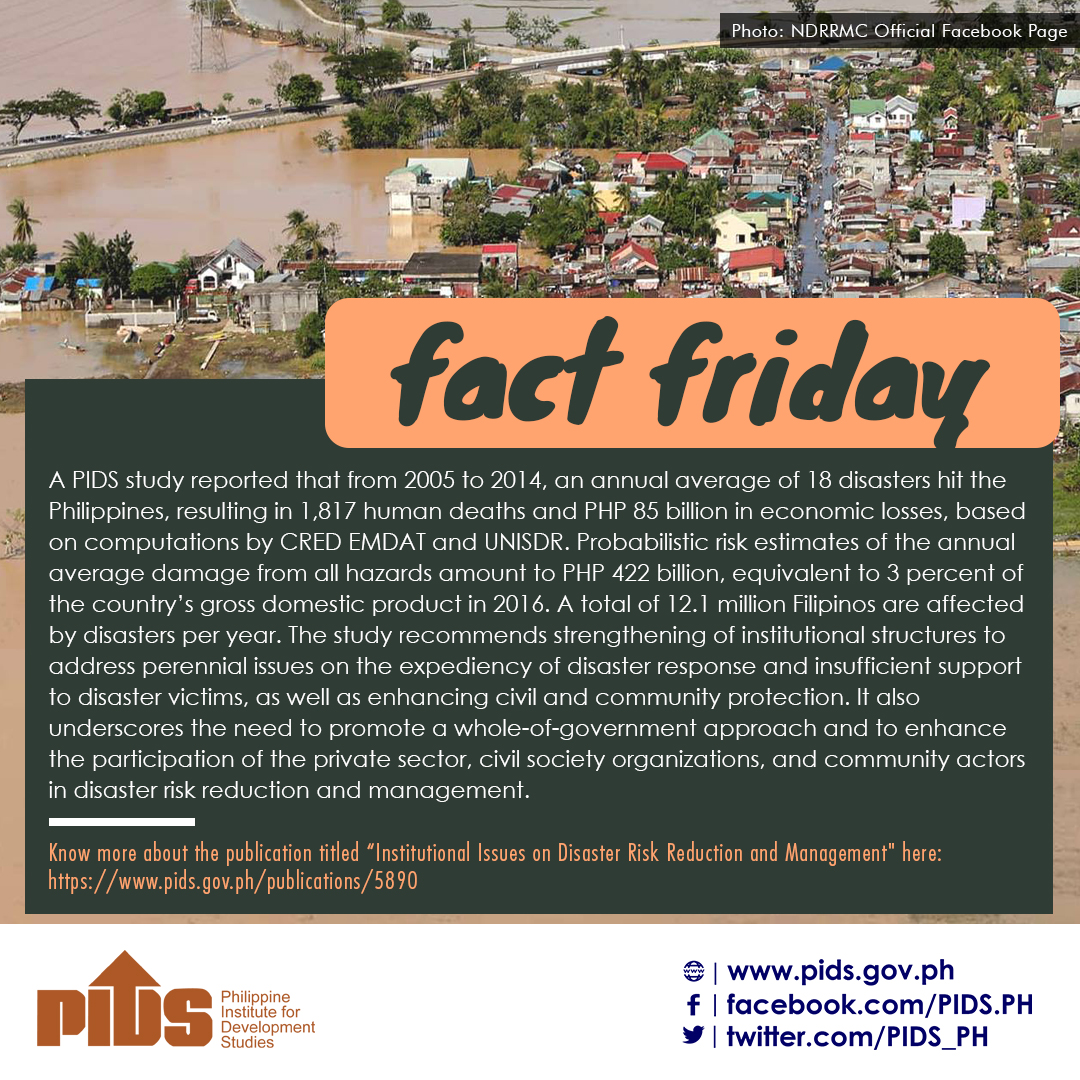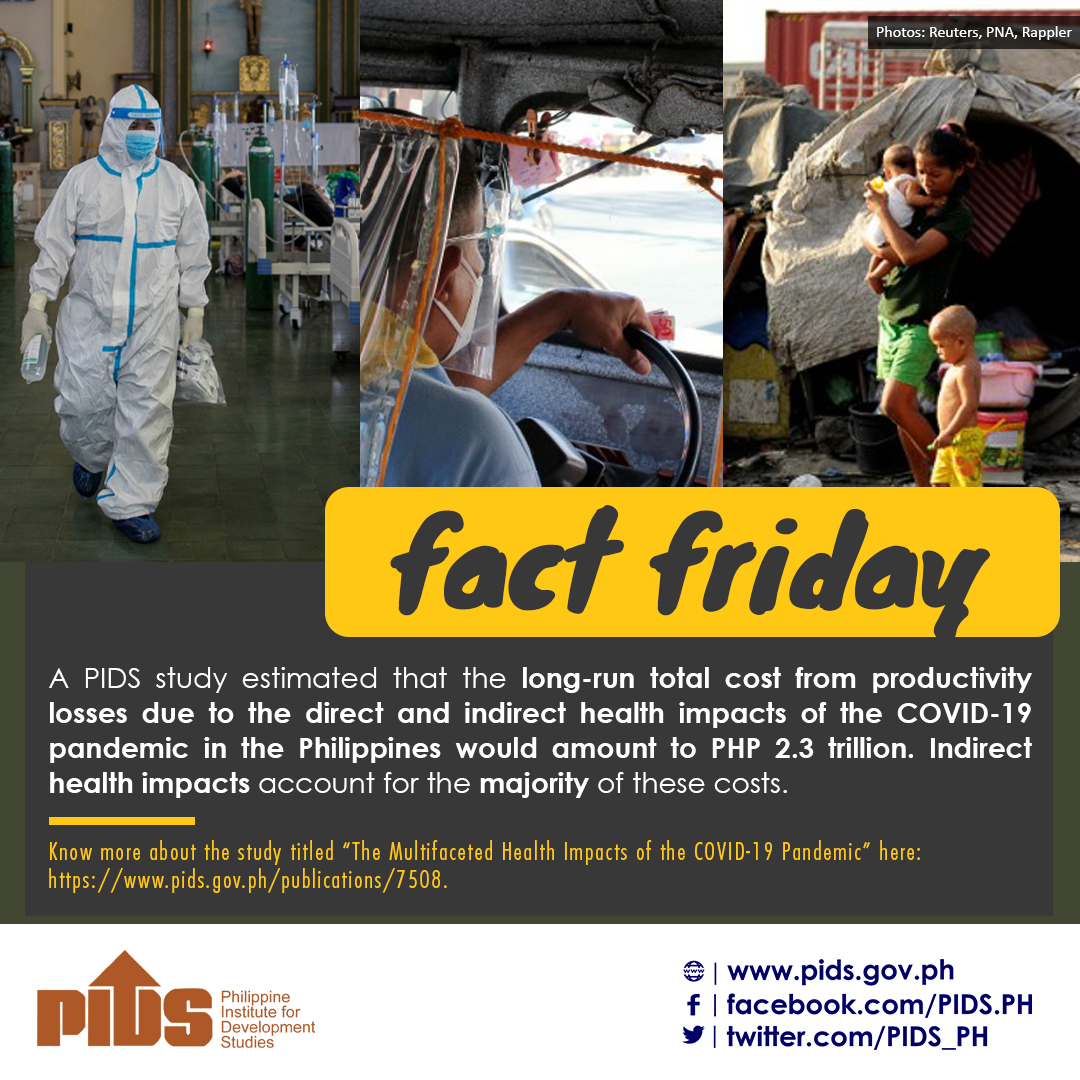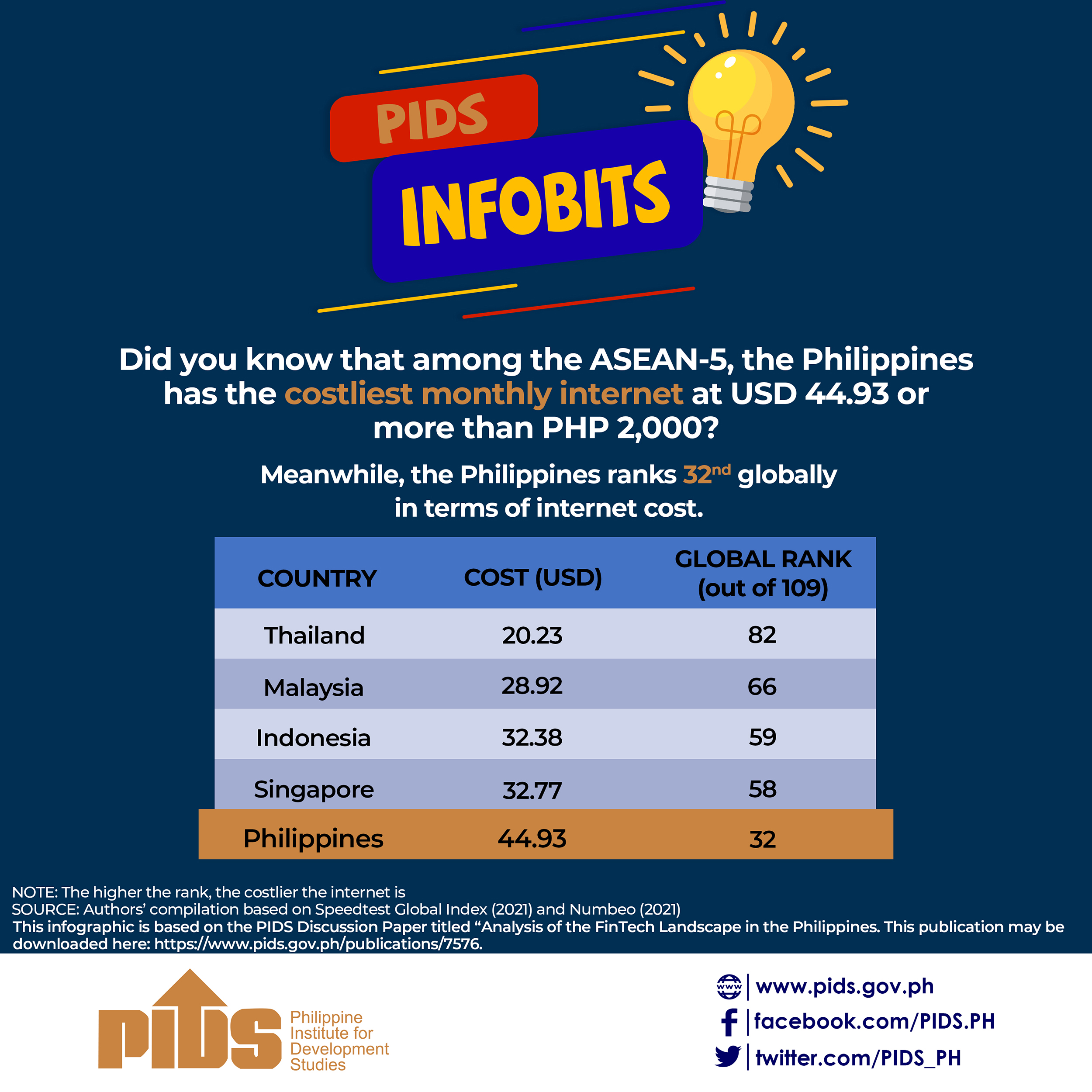MANILA, Philippines – The cost of shifting to a federal system of government will amount to only P13.29 billion, members of the Consultative Committee (Con-Com) said on Friday, August 31.
Their estimate is in stark contrast to figures presented by other bodies. The National Economic and Development Authority (NEDA) estimated to cost to be between P131 billion to P253 billion.
The Philippine Institute for Development Studies (PIDS), meanwhile, said the shift would set the government back by P44 billion to P72 billion.
Political science professor and Con-Com member Edmund Tayao presented the breakdown of the P13.29-billion figure. It was based on the assumption that there would be 12 additional senators, 108 new members of the House of Representatives, 450 new regional assemblymen, 18 federated regions (less Bangsamoro), and one intergovernmental commission.
The amount, however, does not factor in the cost of creating 3 new high courts and the additional 33 justices (15 for Federal Electoral Court, 9 for Federal Constitutional Court, 9 for Federal Administrative Court), as provided in the Con-Com's draft charter. (Read the entire draft and summary of highlights here).
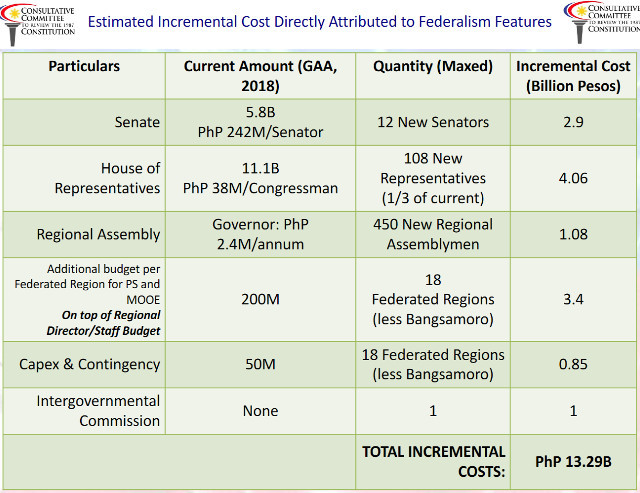
Why different from other figures? Tayao said that the large discrepancy between the Con-Com estimate and NEDA and PIDS estimates is due to a difference in assumptions.
"The difference really is with the assumption. What was the computation of the other agencies and what was included in our computation?" said Tayao.
Interior Assistant Secretary Jonathan Malaya, who spearheads federalism promotion efforts, faulted government agencies for not consulting the Con-Com when they came up with their figures.
"Wrong assumptions were made when the budget was made by DOF (Department of Finance) and NEDA. They never came to Con-Com to ask about the details of the [draft] constitution," he said.
One such wrong "assumption," said Tayao, was the inclusion of the cost of building new buildings for supposed new regional offices. Tayao said there would be no need to build new offices because the existing regional offices of the various national agencies could still be used.
Most major departments, like the Department of Agriculture and the Department of Public Works and Highways, have regional offices all over the country. If national powers are given to the regions, this only means those regional offices become answerable to the regional governments instead of the national government.
This, said Tayao, is also why there is no truth to the claim that massive lay-offs of government workers will take place.
"There will be no mass layoffs. Why? Because employees, if needed, will just shift from one boss to another. They will simply shift from the national government to the regional government," said Tayao.
The P44 billion to P72 billion estimate by PIDS was based on 17 regions, not 18.
The amounts factor in the salaries of governors and vice governors of the states, senators, politicians' staff, and the offices' operating expenses.
PIDS' Rosario Manasan said the estimate is conservative, as it assumes that the existing government bureaucracy will not require any additional costs.
The Con-Com members also presented how revenue will be shared between the federal government and federated regions. The federal government will have P2.23 trillion to spend while the federated regions divide P1.72 trillion among themselves.
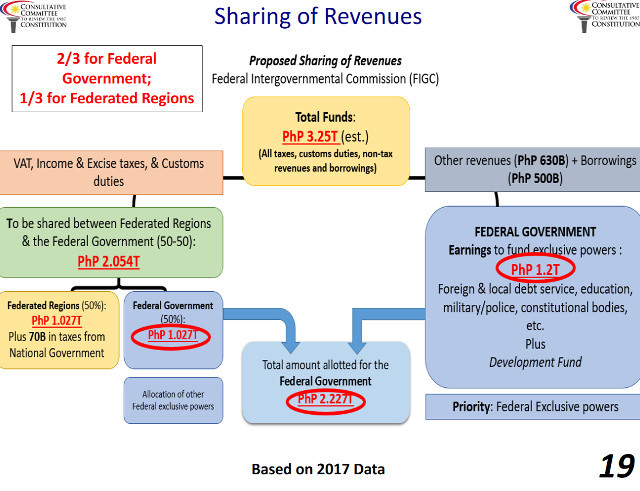
How many economists in Con-Com? Tayao acknowledged that the Con-Com may have not considered all factors in their computation but said this just shows the need for a longer and more fruitful discourse on the real cost of federalism.
"Maybe they have other details we didn't see. Maybe it's better for us to have a longer discussion," he said.
The Con-Com counts only one member, Arthur Aguilar, as having expertise on economics. Most of its members are lawyers, former lawmakers, political science experts, and retired military men.
Finance Secretary Carlos Dominguez III and Socioeconomic Planning Secretary Ernesto Pernia have openly expressed their misgivings about the economic and budgetary aspects of the Con-Com's draft charter.
Their public remarks even prompted one Con-Com member, Father Ranhilio Aquino, to say that President Rodrigo Duterte himself may have grown lukewarm to the cause of federalism.
Malacañang, however, has said that all Cabinet members support the shift to federalism. – Rappler.com


